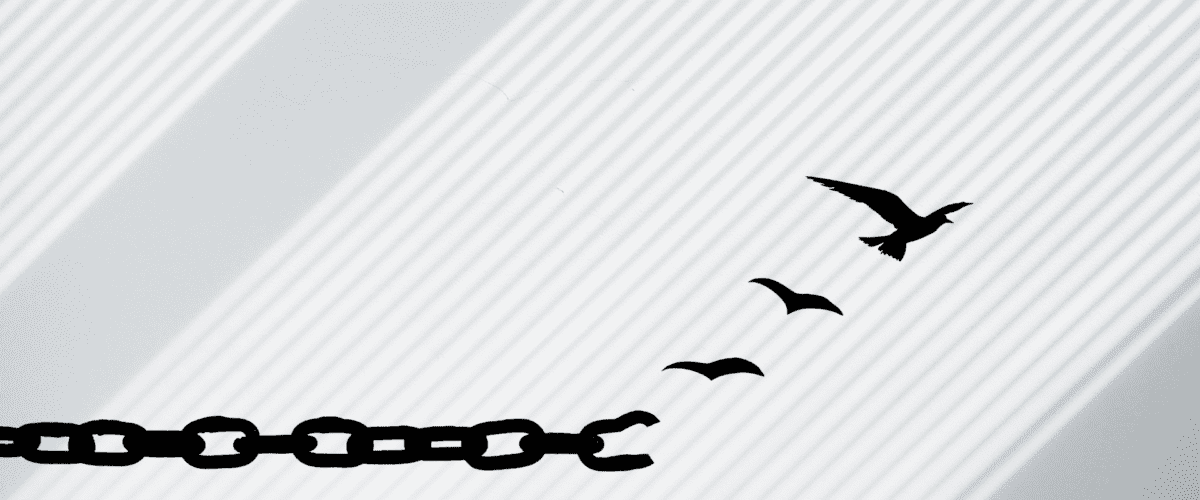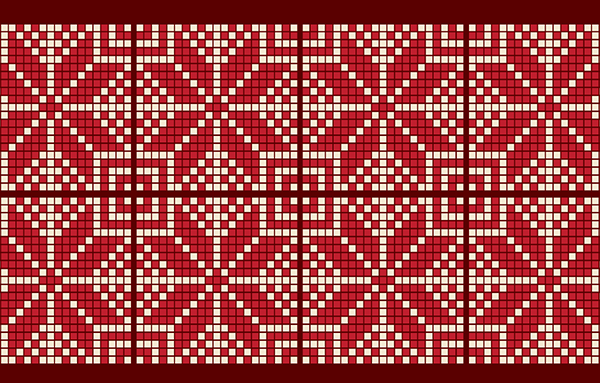
Aditya Phalnikar

Adrija Ghosh

Hrishika Jain
A Division Bench of the Bombay High Court on December 1, 2021 passed an order in the Bhima Koregaon violence case (Sudha Bharadwaj v. National Investigation Agency), granting ‘default bail’ to lawyer-activist Sudha Bharadwaj, but denying bail to the eight other co-accused. Bharadwaj spent almost three years in custody. The National Investigation Agency has appealed against the grant of default bail to Sudha Bharadwaj before the Supreme Court.
In this article, we seek to explain the relevant provisions and precedents on default bail, and their application (and expansion) by the Bombay High Court.
What is ‘Default Bail’?
The Code of Criminal Procedure, 1973 (Code) provides that police investigation for any offence should ordinarily be completed within 24 hours of filing the First Information Report (FIR). After this investigation is completed, and the police have grounds to believe that the accused has committed the offence, they are required to file a chargesheet under Section 173 of the Code. It is only after filing such a chargesheet that investigation is considered complete.
It will be obvious to readers that most investigations are not completed within 24 hours. In such cases, the police are required to produce those that they arrest before a Magistrate, within 24 hours from the time of arrest. At this point, it is the Magistrate who decides, depending on whether the allegations against the arrested person seem well-founded, whether the accused should be released or sent back to the custody of the police. In police custody, the accused is detained with the police, who have access to the accused for the purpose of interrogation. Given the dangers of abuse that this form of custody can entail, Section 167 provides that the Magistrate cannot send the accused back to police custody beyond a period of 15 days. Even during the 15 days, the Magistrate has the discretion to decide whether and for what periods the accused may be sent to police custody, or be detained in prison in what is called ‘judicial custody’ or be released. Beyond this period, however, the police cannot seek custody of the accused at all; the Magistrate can only release the accused, or send him to judicial custody, where the detainee is not readily accessible to the police for interrogation. This, however, also cannot be extended beyond a period of 90 days from the date of arrest in case of serious offences, and 60 days for other offences.
Recall that ordinarily the filing of the chargesheet marks the end of the investigation, after which the pre-trial court procedures begin. The question that naturally arises is what happens if the investigation is not finished (and the chargesheet is not filed) within 90 days from the date of arrest? When this happens, the accused becomes entitled to be released on bail as per Section 167(2), or what is called ‘default bail’. The default is that of the prosecution in not filing the chargesheet within the maximum prescribed period. However, what it does not mean is that the bail is granted to the accused by default or automatically. As the court in Uday Mohanlal Acharya v. State of Maharashtra notes, the accused must show willingness to furnish the bail amount to avail the right to be released on default bail. However, the release is still a ‘right’ in the sense that if the accused is willing to furnish the bail amount, then the bail application succeeds automatically, and will not depend upon the merits of the case.
A related question, one that becomes particularly important in Bharadwaj’s case, pertains to the type of arrests included in the calculation of the period of custody undergone for the purposes of securing default bail? Sudha Bharadwaj had spent the first days of custody in ‘house arrest’. The Supreme Court’s decision in Gautam Navlakha v. National Investigation Agency becomes relevant here. In the facts of that case, the Supreme Court held that the period spent by Navlakha under house arrest would be excluded because the courts that had directed Navlakha to be placed under house arrest had not intended it to count towards the prescribed period under Section 167, and that the investigating agency did not have access to him during the said period. The Supreme Court however, seems to have left open the possibility of house arrest being a valid form of custody under Section 167, depending on the conditions of house arrest.
It is also worth noting that different special legislations incorporate provisions similar to Section 167 but with certain modifications. While Section 167 of the Code only allows for a total detention of 90 days, Section 43D(2) of the Unlawful Activities (Prevention) Act (‘UAPA’) allows this period to be extended up to 180 days by an order of the Court on the showing of satisfactory reasons by the Public Prosecutor. Other special legislations have also made similar, but significant departures from Section 167 in favour of expanding police powers (see Section 21(2) of Maharashtra Control of Organised Crime Act, 1999; Section 49(2) of Prevention of Terrorism Act, 2002 (repealed); and Section 36A(4) of Narcotic Drugs and Psychotropic Substances Act, 1985).
The Sudha Bharadwaj case: Issues and Resolutions
In January 2018, an FIR was lodged in Pune in connection with the violence at Bhima Koregaon. Consequently, Sudha Bharadwaj was put under house arrest from August 28, 2018 to October 27, 2018 for 60 days. On the latter date, she was taken into police custody. She filed an application for default bail on November 26, 2018, after the completion of 90 days from the date of her house arrest, as no charge sheet had been filed by the police until then. This date was, however, only 30 days after the date on which Bharadwaj was taken into custody other than house arrest. On the same day, her application was rejected by an Additional Sessions Judge (‘ASJ’), who extended the period of her custody under Section 43D(2) of the UAPA to 180 days.
Issues in Sudha Bharadwaj’s case
As a result, three controversies arose before the Bombay High Court in appeal against the ASJ’s decision:
First, whether the extension of the period of detention by ASJ from 90 days, as provided under Section 167 of the Code to 180 days in exercise of powers under Section 43D(2) of the UAPA, was invalid due to the ASJ not having the jurisdiction to extend detention under the UAPA; and
Second, if the extension of detention was invalid, and the prescribed period of detention continued to be 90 days, from what date would this period be counted; the date of house arrest, or the date of being taken into police custody?
Third, if the period of house arrest were to be excluded, would the filing of the application for default bail on November 26, 2018 (on expiry of only 30 days from the date of being taken into police custody but 90 days from the date of house arrest) be ‘premature’ and thus defeat Bharadwaj’s right to be released on bail that accrued once the 90-day period expired on January 25, 2019?
What the Bombay High Court Held in Sudha Bharadwaj’s Case
On the first issue, Bharadwaj’s argument before the Bombay High Court was that the ASJ had no authority to extend the period of detention under Section 43D(2), UAPA, since such authority rested exclusively with Special Courts constituted under the National Investigation Agency Act, 2008 (NIA Act). The High Court accepted this, relying on Supreme Court precedent holding that such power vested in the Special Courts designated by the State Government under the NIA Act, and could be exercised by the Sessions Courts only where such a Special Court did not exist. In conclusion, the Bombay High Court held that the period of detention was never validly extended beyond the 90 days provided for under the Code.
On the second question, the Bombay High Court relied on Gautam Navlakha to exclude any period of house arrest from the computation in Bharadwaj’s case, holding that the circumstances of Bharadwaj’s house arrest were similar to that of Navlakha. This meant that the period of 90 days only expired on January 25, 2019 while her application for default bail was filed before this date, i.e., on November 26, 2018.
This brings us to the final controversy. Given that the extension of detention by the ASJ was invalid, and the charge sheet was filed only on February 21, 2019 after the 90-day period expired on January 25, 2019, the right to be released on default bail had accrued to Bharadwaj under Section 167(2). However, her application seeking default bail was pending since November 26, 2018, which was before the expiry of the 90-day period. According to the State, this meant that her premature application did not count towards her having availed her right at all, and that the right could not now be availed through a new application as the charge sheet had already been filed.
Now, courts have interpreted Section 167(2) to create a right to be released on bail if the charge sheet is not filed within the period prescribed. The Supreme Court, speaking through a 5-judge bench in Sanjay Dutt v. State has clarified that while this right accrues as soon as the prescribed period expires, it can only be enforced prior to the filing of the charge sheet if it is availed of. If it is not availed of by then, it cannot be enforced, as even a delayed charge sheet extinguishes the right to be released. Once the charge sheet is filed, bail will be governed by discretionary provisions for grant of bail under the Code, or other special laws, as the case may be. To ‘avail of’ one’s right under Section 167, must file an application seeking default bail and offering to furnish bail. The Supreme Court has, in a different case, also clarified that an application may be made in writing or orally.
Thus, the right to be released under Section 167(2) is not automatic and to be enforced, the following conditions ought to be satisfied:
- An application for default bail under Section 167(2) must be made upon the expiry of the prescribed period, with the accused offering to furnish bail; and
- The said application must be made before a charge sheet has been filed
In Uday Mohanlal Acharya, it was further clarified that as long as the right was availed of by filing an application before the charge sheet was filed, the right would survive even if rejected by the Magistrate and can be enforced on appeal, even if the investigating authority manages to file a charge sheet while the appeal is pending before the higher court.
The existing precedents however, do not clarify whether an application for default bail filed even before the prescribed period expires, as was the case with Bharadwaj’s application, amounts to ‘availing of’ the right to default bail. The judgment in Uday Acharya states that the application seeking bail ought to allege that the charge sheet has not been filed within the prescribed period. Such an allegation is impossible to make in an application that is filed before the prescribed period is over. This would implicitly indicate that the right to default bail does not crystallise on the filing of a premature application, as the same simply cannot meet this requirement. Depriving a detainee of her freedom over a technicality such as this appears preposterous; an observation that was also made by the Bombay High Court in this case.
The Supreme Court’s decisions in Uday Mohanlal Acharya and M Ravindran v. Intelligence Officer, Directorate of Revenue Intelligence have explicitly linked the right to personal liberty under Article 21 with Section 167, requiring legitimate law and order concerns to be balanced with the guarantee of personal liberty. On this basis, the Bombay High Court held that the real ratio of the decisions in Ravindran and Uday Mohanlal Acharya was that, for the right to default bail to crystallise, the applicant would need to show willingness to bring surety or furnish bail. It then observed that since that had been done in the present case, by filing an application, albeit premature, Bharadwaj’s right could not be taken away on grounds of mere technicalities.
The Court observed that in Bharadwaj’s case, the prescribed period of 90 days (excluding the period spent in house arrest) had expired on January 25, 2019 and till then no charge sheet had been filed. In the meantime, a ‘premature’ application for default bail was filed on November 26, 2018. When the prescribed period actually expired on January 25, 2019, the same was pending adjudication. The court granted default bail on the basis that this adequately conveyed Bharadwaj’s willingness to furnish bail, and that is what was the core of what it meant to ‘avail’ of the right to default bail. It held that the right to be released accrued to her on the day that the 90-day period expired, and as of that date, her pending ‘premature’ application conveyed her willingness to furnish bail.
It was observed that denying Bharadwaj bail would impinge upon her right to personal liberty. This reading of Section 167, in light of the right to personal liberty guaranteed under Article 21 was very important. A pedantic reading of the law would have led to the conclusion that a premature application under Section 167(2) was no application at all. As a result, the right to default bail would have stood extinguished after the belated filing of the charge sheet.
Conclusion
The Bombay High Court, in its December 1, 2021 order, distilled the ratio of relevant precedents to their core, holding that the accused only needed to show willingness to furnish bail, which was done even on the filing of a premature application under Section 167(2). For this purpose, the invocation of constitutional rights and guarantees was a notable contribution to the law on default bail.
The other eight co-accused in the case, however, were denied bail as no application under Section 167(2) had been filed by them by the time the charge sheet was filed, even though the latter was also filed after the expiry of 90 days. The court was seemingly constrained to refuse the grant of default bail without an application or expression of willingness to furnish bail or surety, given that the right to be released under Section 167(2) is not automatic. Here, it failed to follow through on the link between the right to personal liberty and Section 167 that it relied upon when granting bail to Bharadwaj. This link has been invoked by the Supreme Court in Rakesh Kumar Paul v State of Assam, to interpret the guarantee of personal liberty under Article 21 of the Constitution as requiring a court to inform an accused of his right to default bail on the expiry of the prescribed period under Section 167. The Bombay High Court failed to enquire into whether this was done in case of the eight co-accused, and what such a lapse would mean for the rights of those who continue to be detained.
Aditya Phalnikar is a 4th year student at NLSIU, Bangalore and a Death Penalty Research Fellow at Project39A. Adrija Ghosh and Hrishika Jain are Consultants (Research) at Project 39A, National Law University, Delhi.





